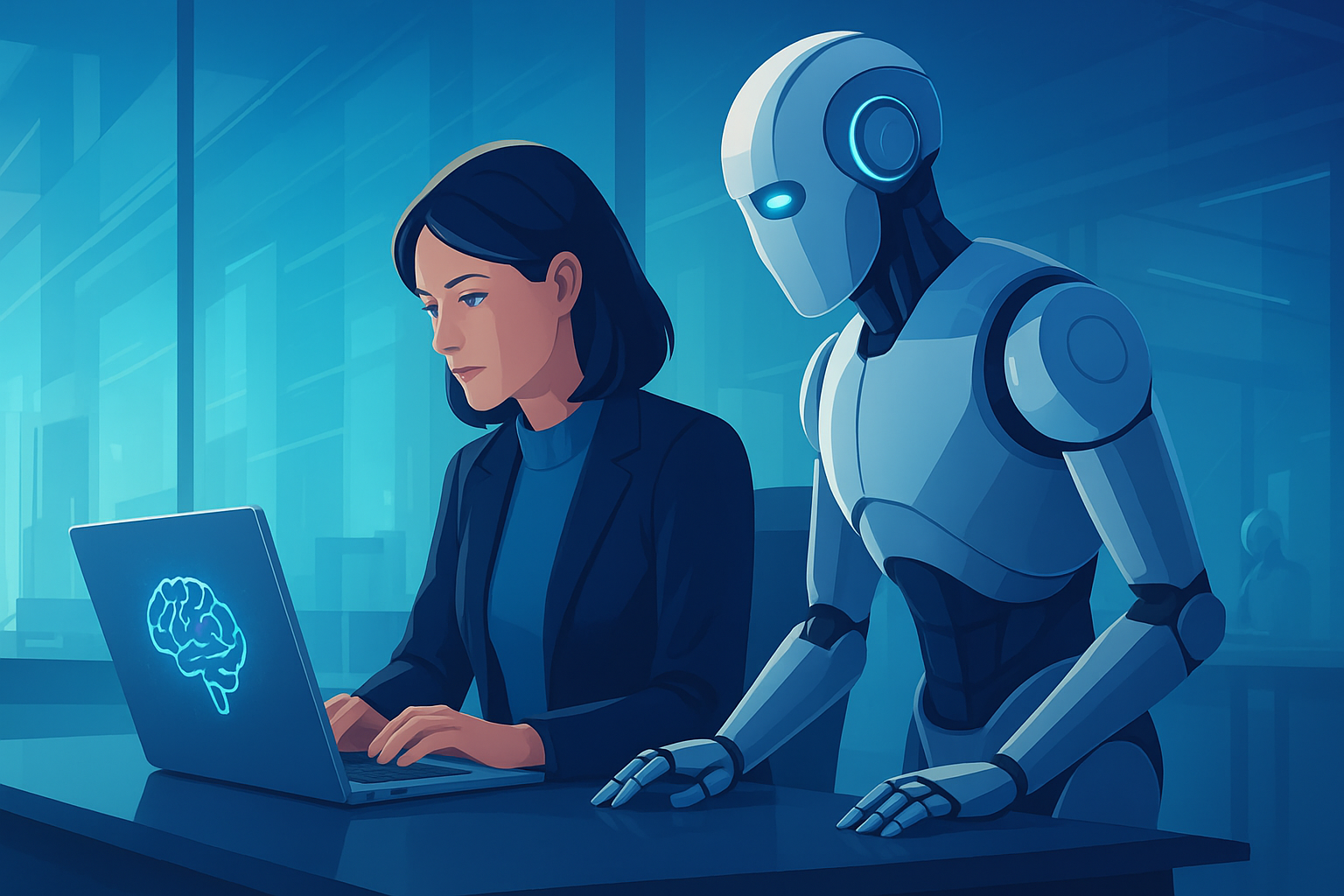📰 Introduction
The AI revolution just leveled up. OpenAI has officially launched GPT-5, its most advanced language model yet. Built with greater reasoning, memory, and autonomy, GPT-5 is already being called the most powerful AI tool in existence.
For Americans, this isn’t just another tech update. It’s a workforce earthquake. From Wall Street to Main Street, GPT-5 is poised to reshape the way we work, learn, and live. But the big question is: will it create more opportunity—or more disruption?
⚡ What’s New in GPT-5?
Compared to GPT-4, GPT-5 introduces game-changing features:
-
Autonomous Agents – It can complete multi-step tasks on its own (e.g., research, summarize, book, and send confirmations).
-
Long-Term Memory – GPT-5 can hold conversations that span weeks, not minutes.
-
Multimodal Mastery – Text, code, images, audio, and even video.
-
Enterprise Power – Microsoft has embedded GPT-5 into Windows, Office, and Azure, making it part of daily U.S. business life.
What It Means for American Jobs
AI is no longer a sidekick—it’s stepping into the driver’s seat. Here’s what’s at stake:
At Risk:
-
Customer Service & Call Centers – GPT-5 can replace overseas call agents with U.S.-based AI chatbots.
-
Legal Research & Drafting – Contracts, briefs, and compliance docs are increasingly automated.
-
Media & Marketing – Copywriting, ad campaigns, even local journalism could be AI-driven.
On the Rise:
-
AI Oversight Roles – Companies will need “AI auditors” to check GPT-5’s decisions.
-
Healthcare AI – GPT-5 could act as a diagnostic assistant in U.S. hospitals.
-
Education – Personal AI tutors for American classrooms.
McKinsey predicts that by 2030, up to 12 million U.S. workers will need to change occupations due to AI automation.
💡 The U.S. Advantage in AI
While some worry about displacement, America has unique strengths:
-
Research Hubs – Stanford, MIT, and Berkeley remain AI powerhouses.
-
Capital & Startups – Silicon Valley VC money fuels the fastest AI startups.
-
Policy Leadership – Washington’s AI Safety Executive Order gives the U.S. regulatory power others follow.
In short, the U.S. isn’t just reacting to AI—it’s leading the global race.
🔥 Public Sentiment in the U.S.
The rollout of GPT-5 has triggered mixed reactions among Americans:
-
Excited – Tech professionals see huge productivity gains.
-
Skeptical – Some say GPT-5 still “feels robotic” compared to humans.
-
Fearful – Gig workers, freelancers, and creatives worry about job loss.
On TikTok and Reddit, one theme dominates: “We can’t afford to ignore AI.”
📈 What American Businesses Should Do Now
-
Adopt AI Early – First movers gain massive competitive advantages.
-
Upskill Workers – Invest in reskilling programs before disruption hits.
-
Implement Guardrails – Create clear, ethical AI usage policies.
-
Leverage U.S. Incentives – Government innovation grants can offset costs.
🌍 The Bigger Picture
GPT-5 is more than a shiny upgrade. It’s the start of a new workforce reality.
For U.S. businesses and workers, the message is clear:
-
Adapt now, or risk being left behind.
-
Embrace AI, but manage it responsibly.
GPT-5 might not feel like science fiction yet—but it’s the biggest leap America has seen since the smartphone.
